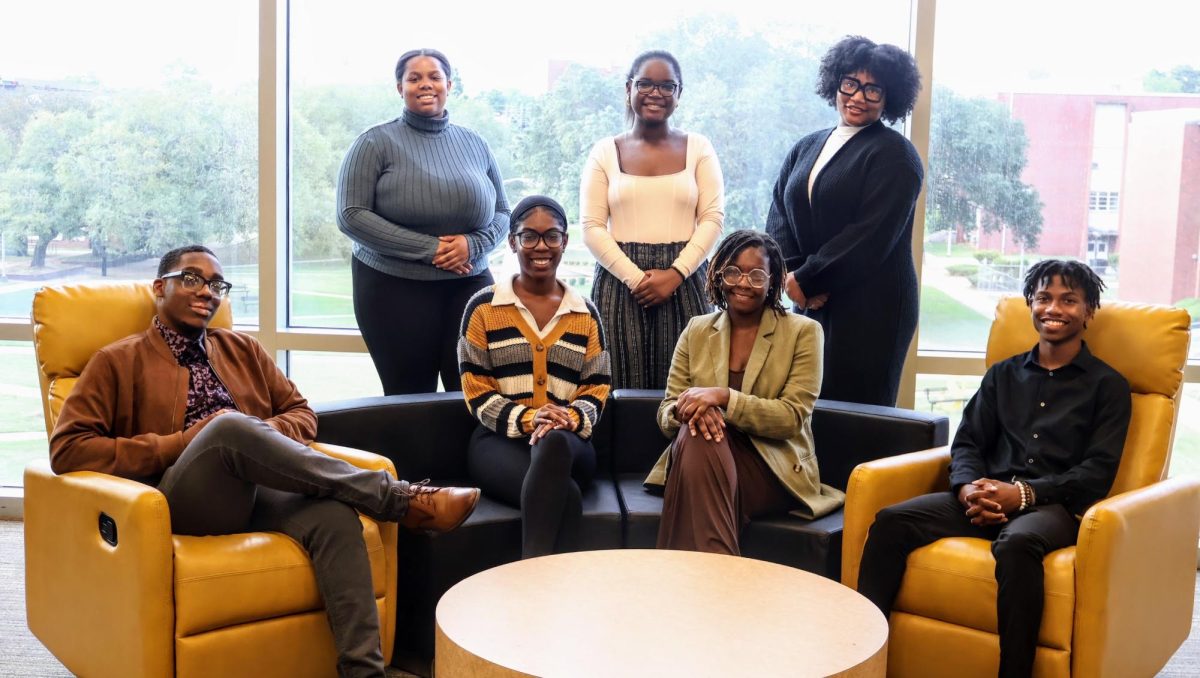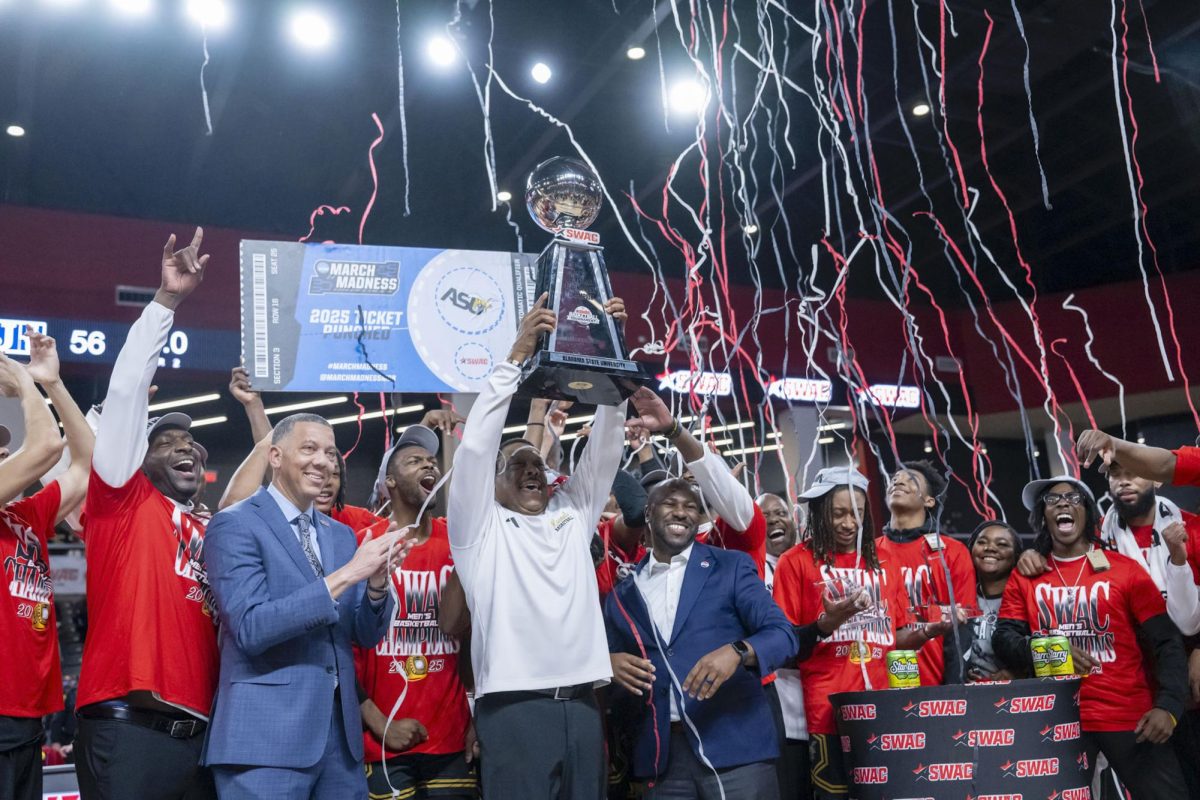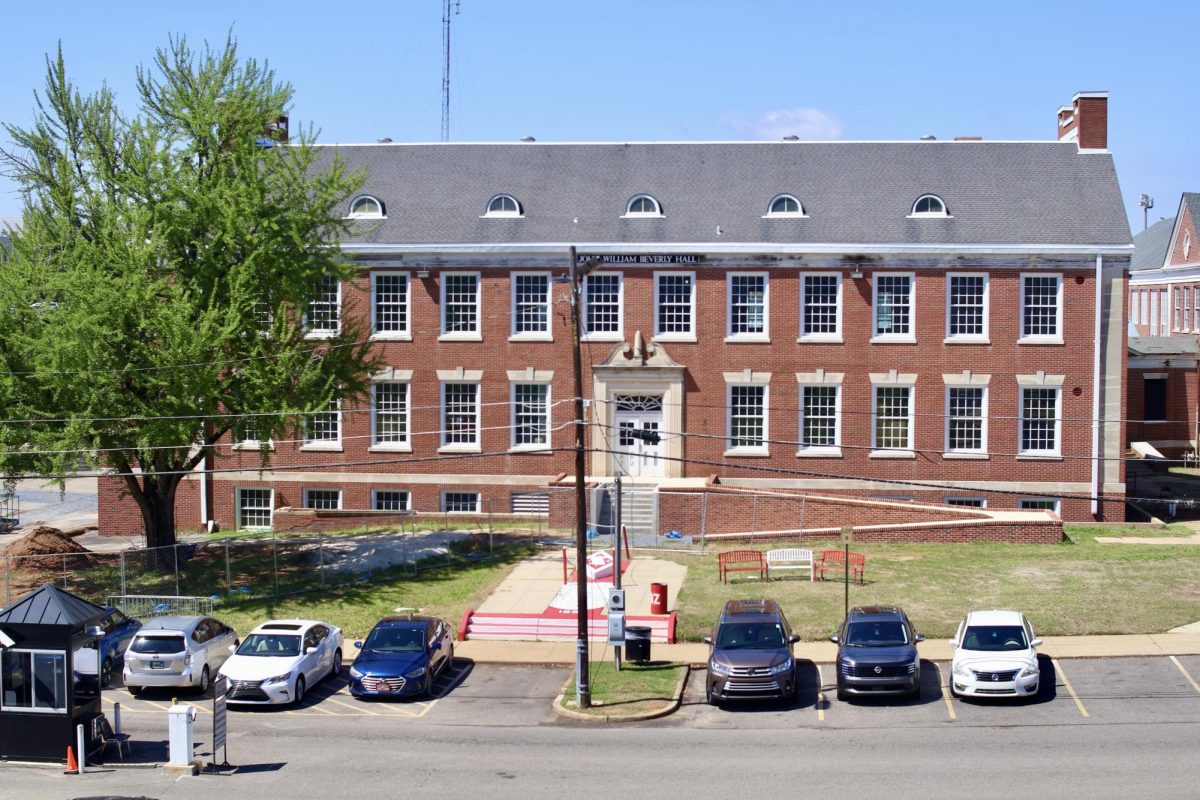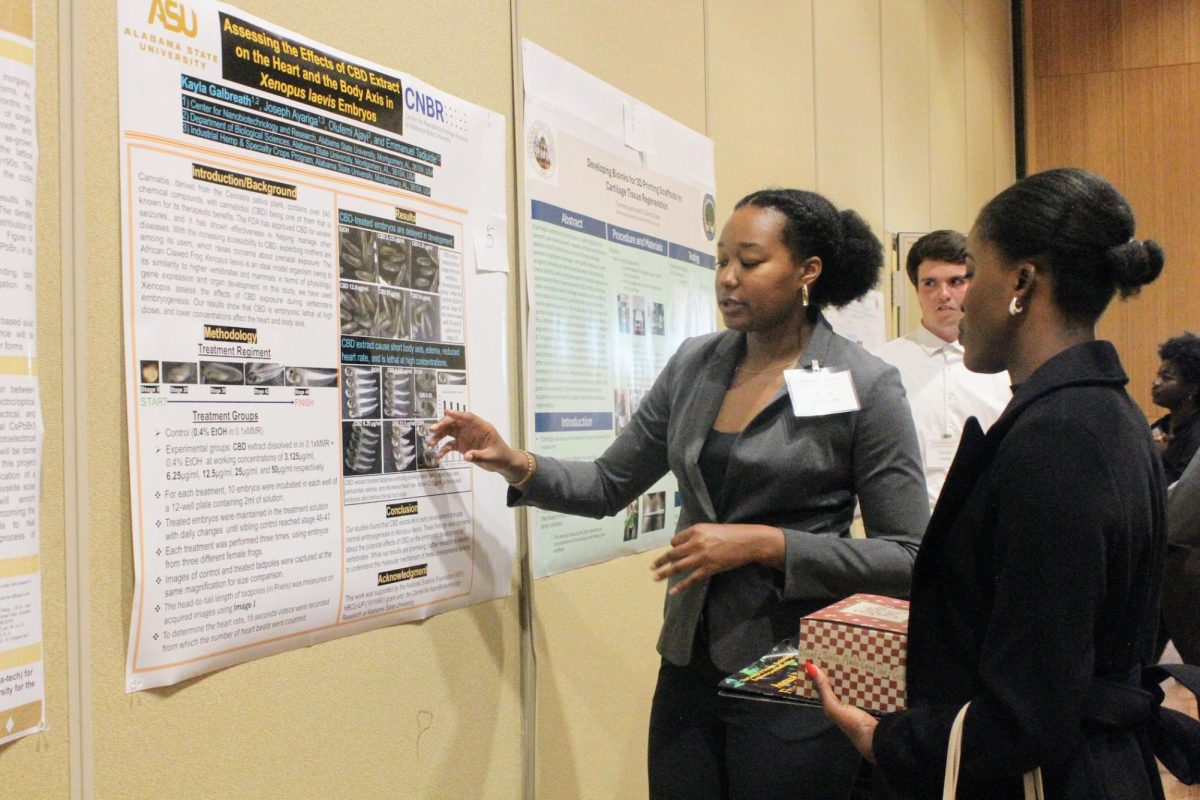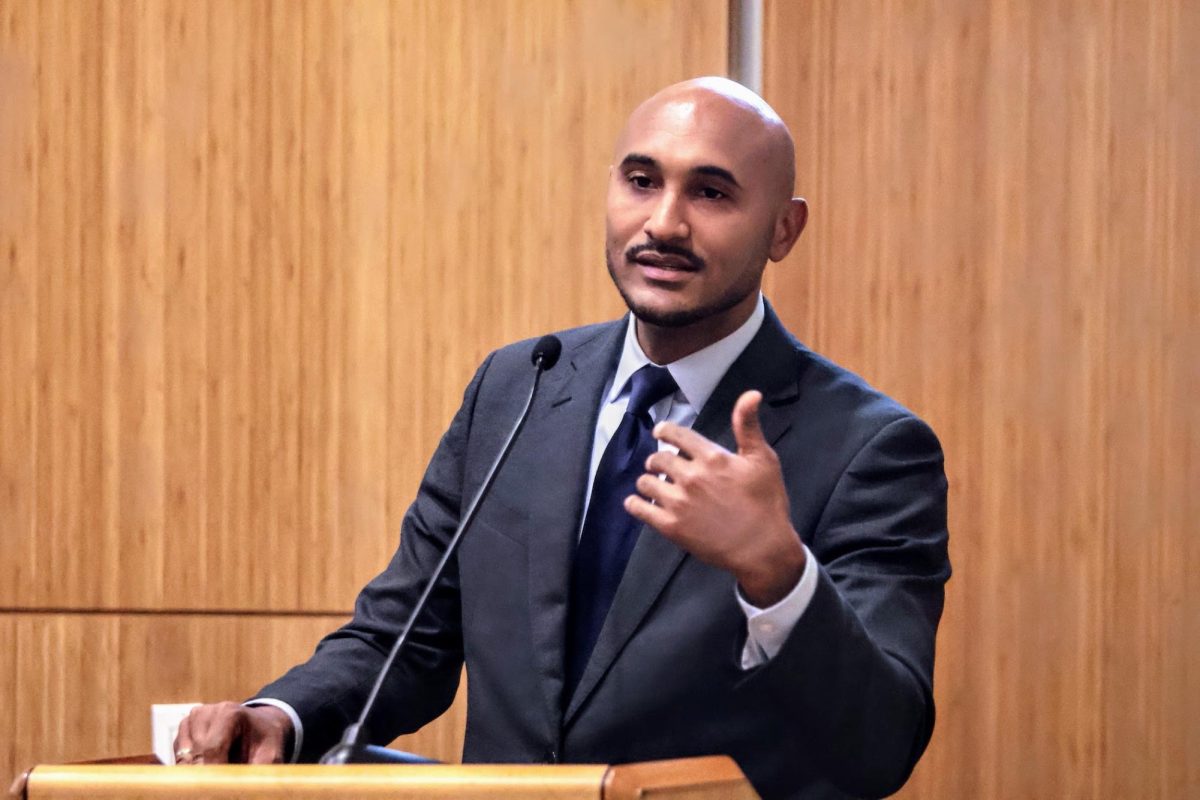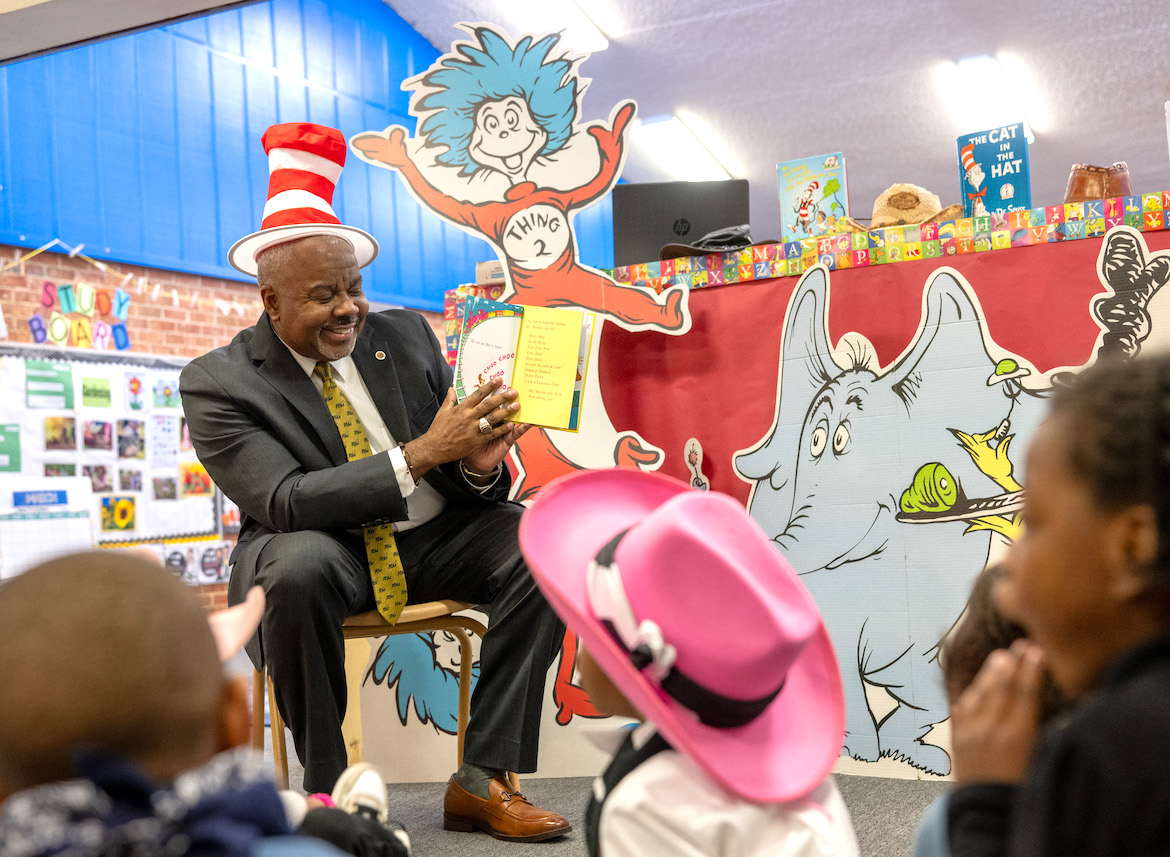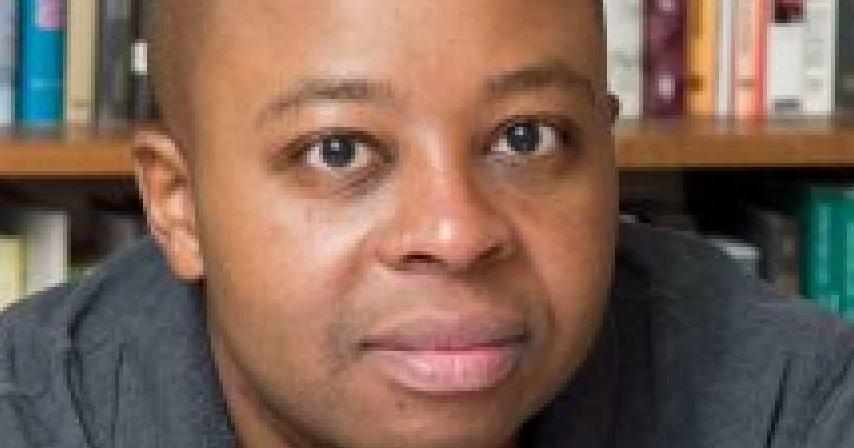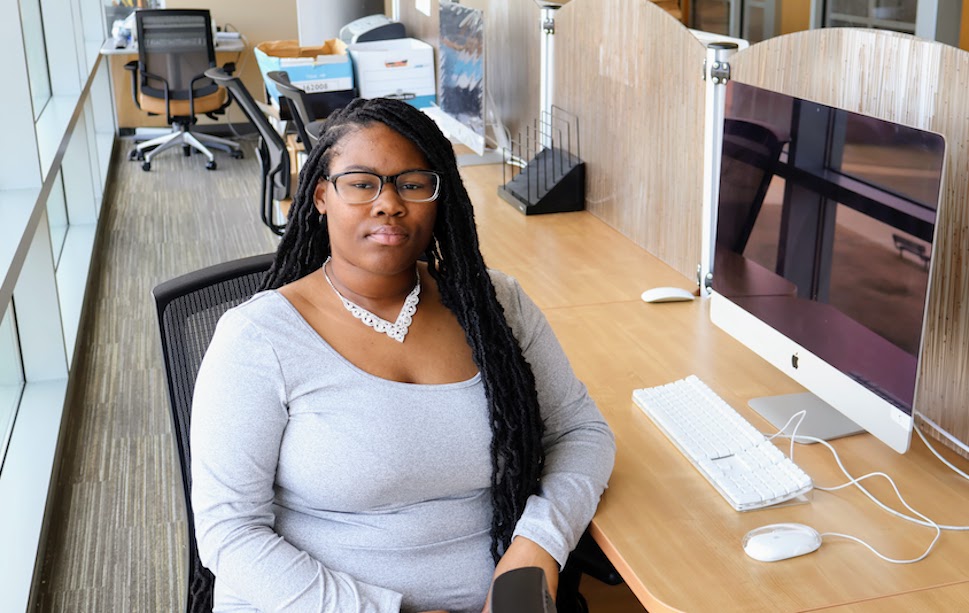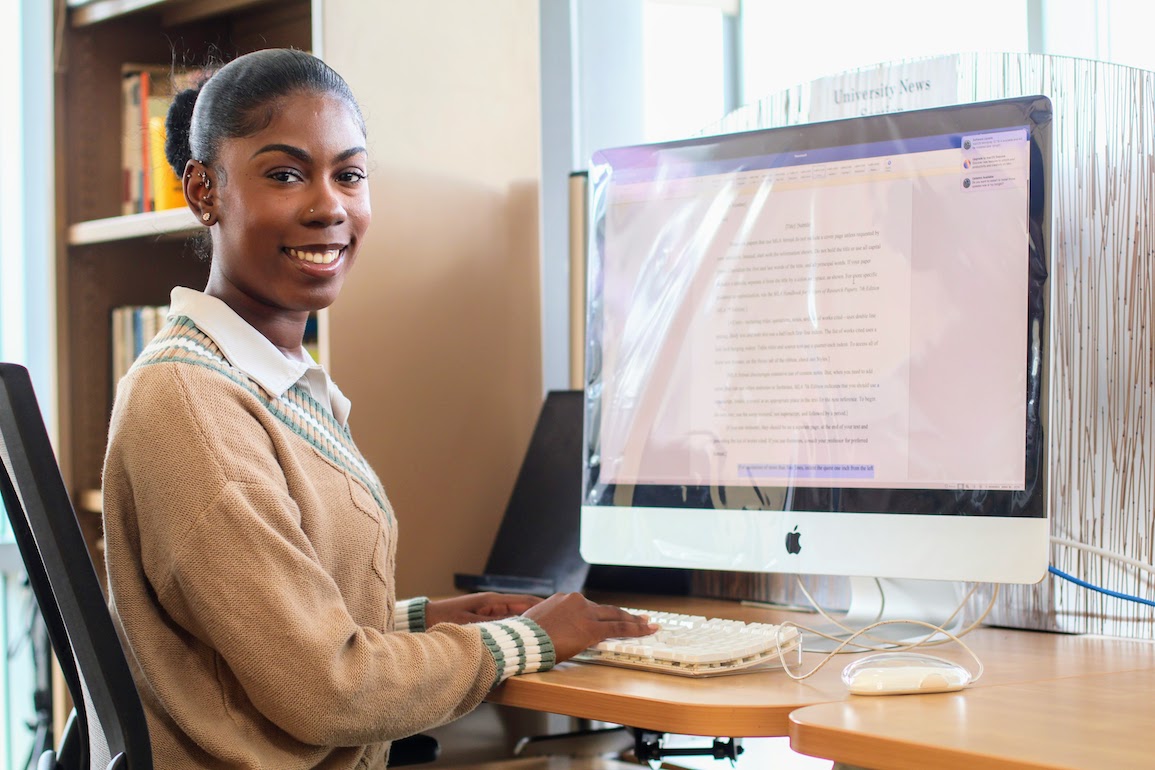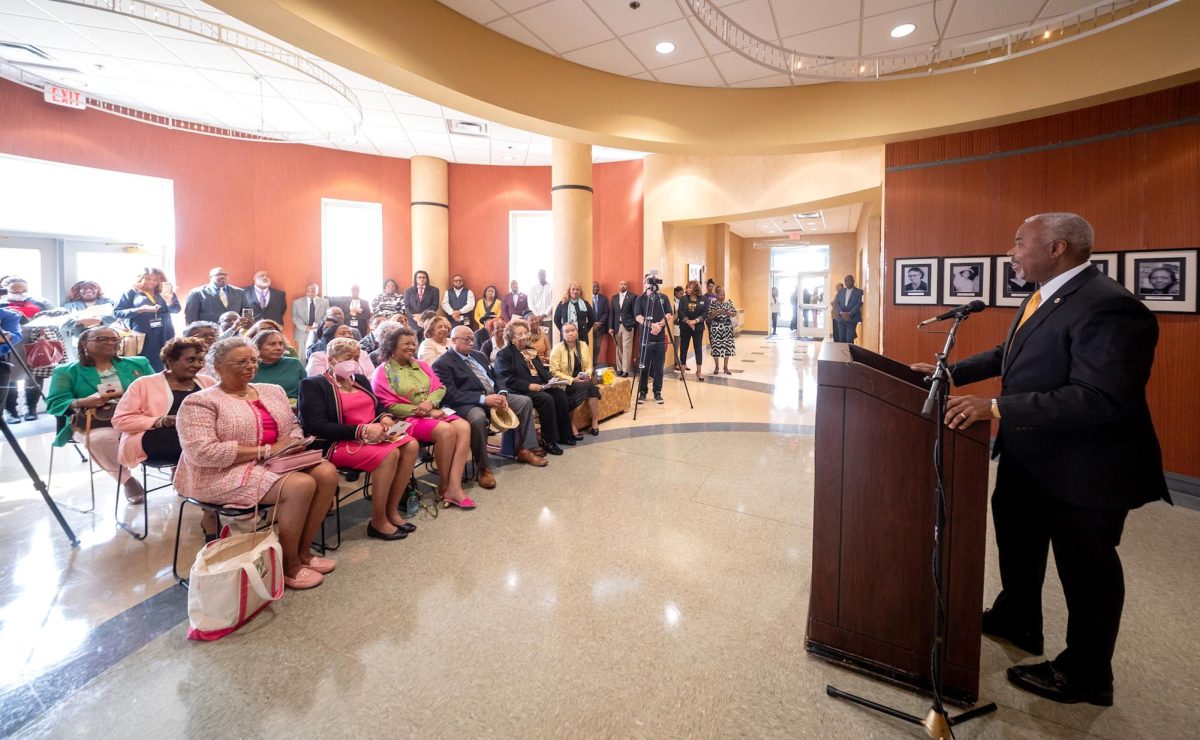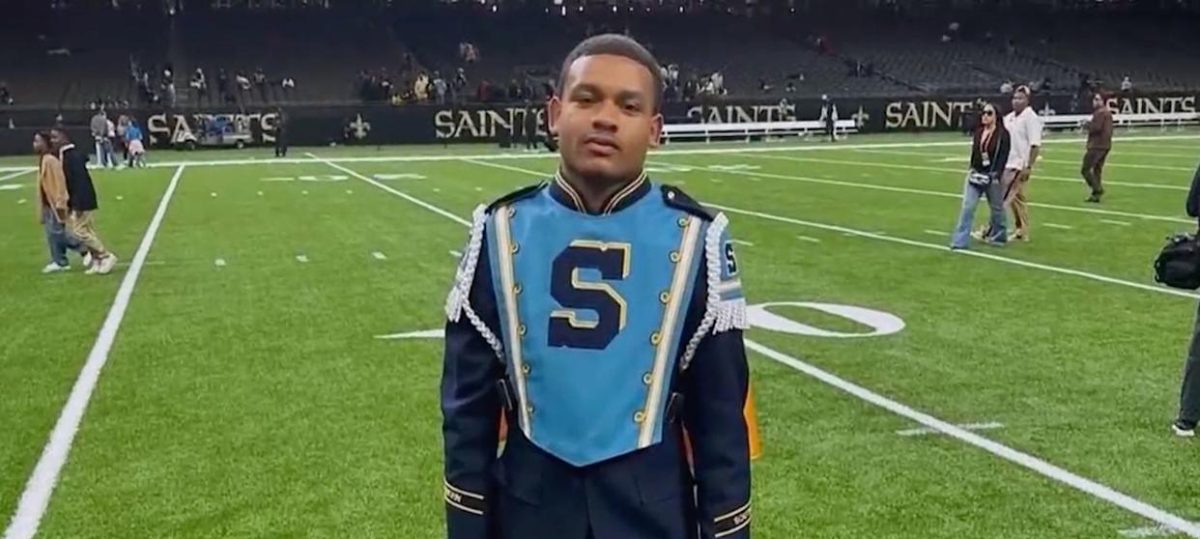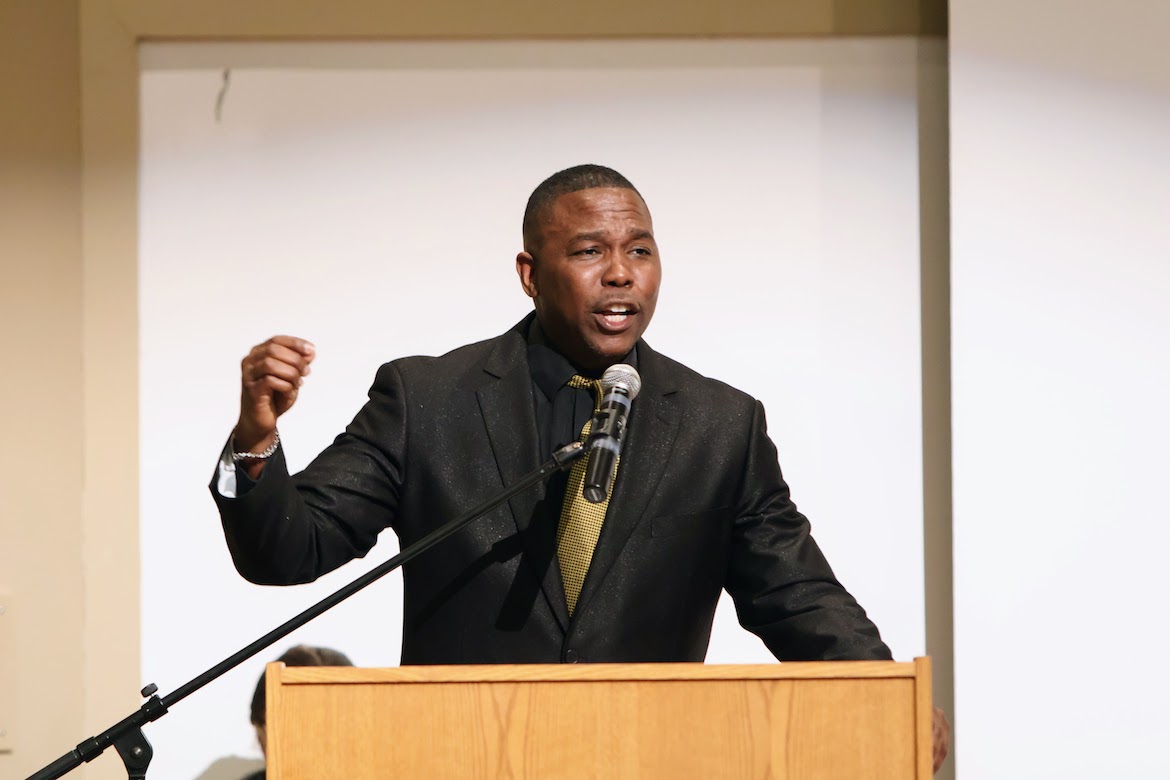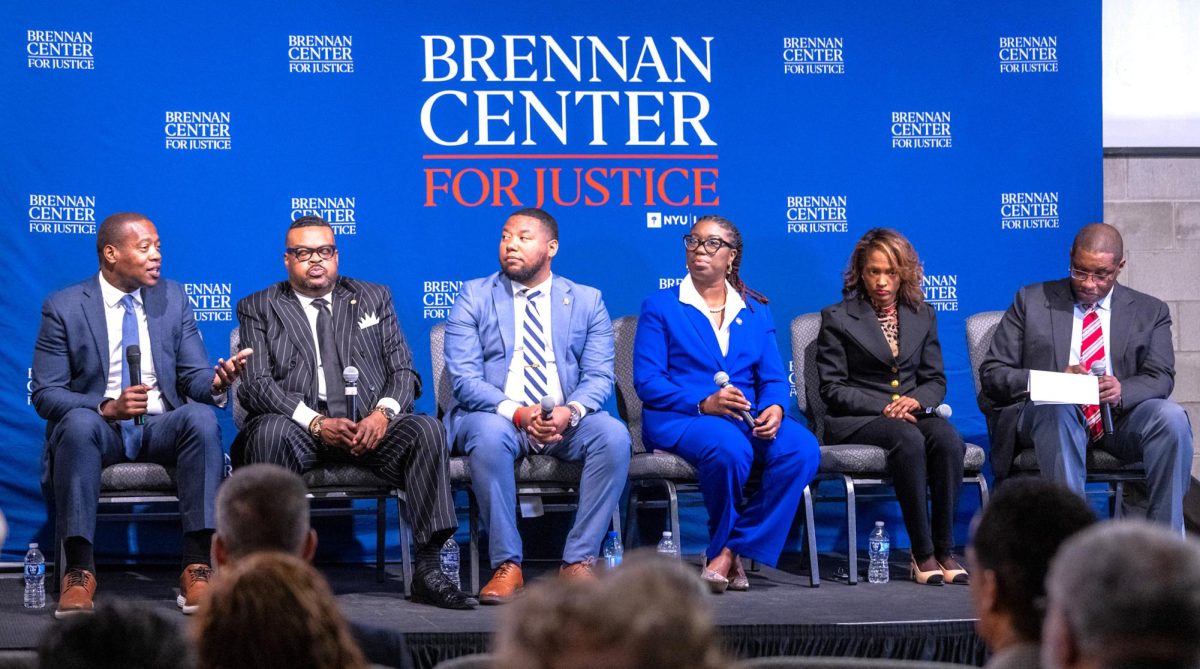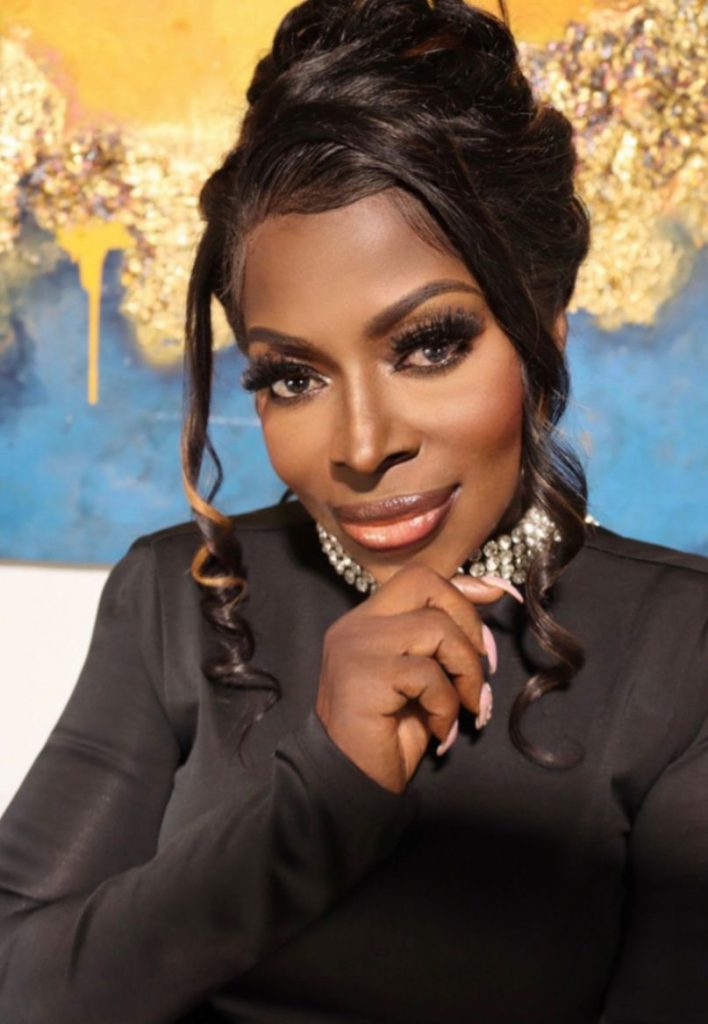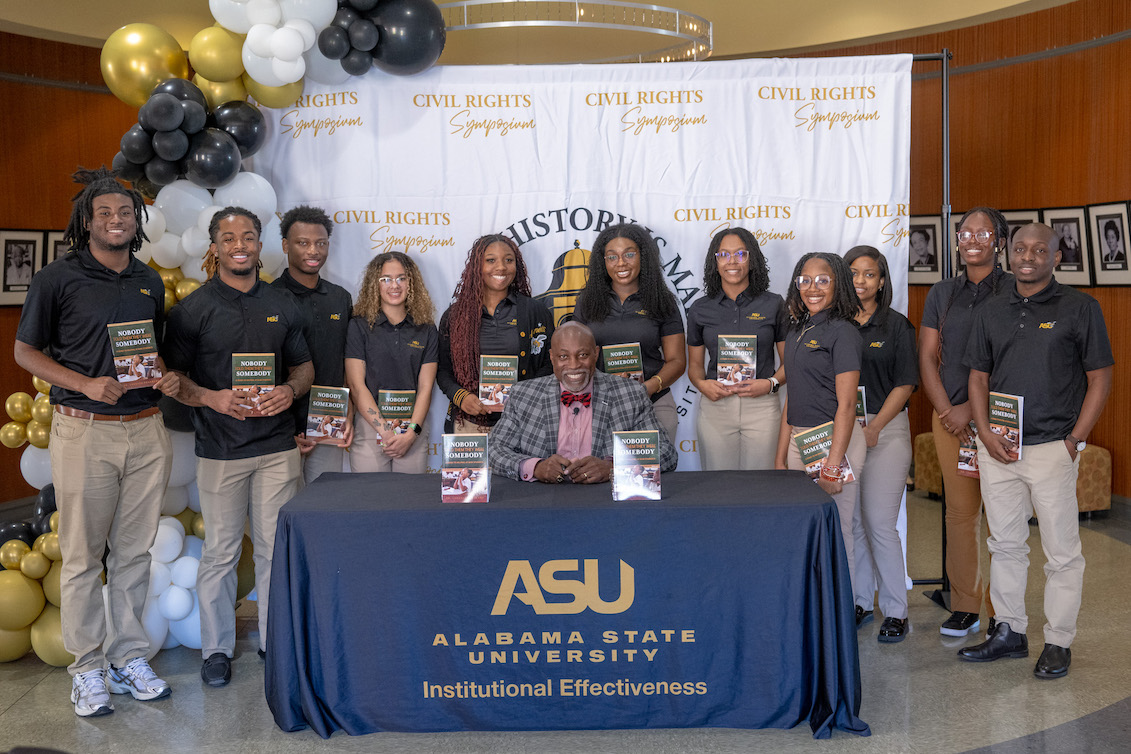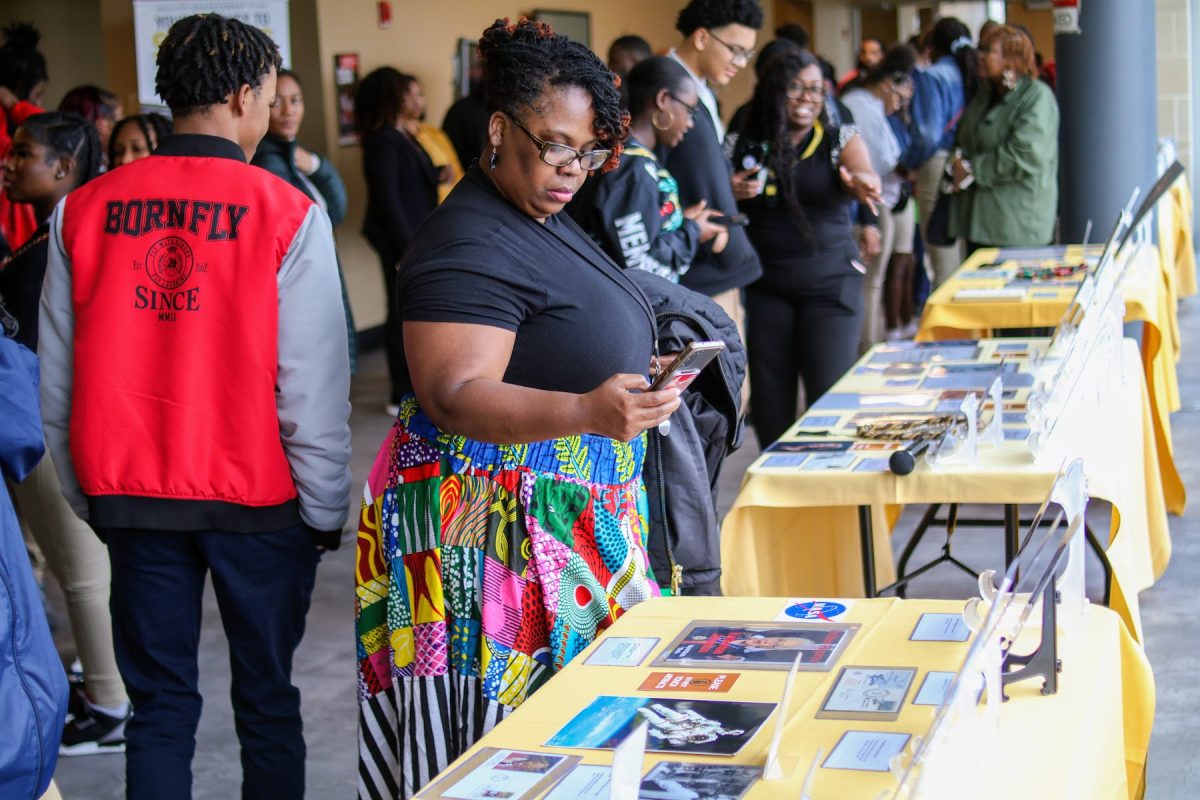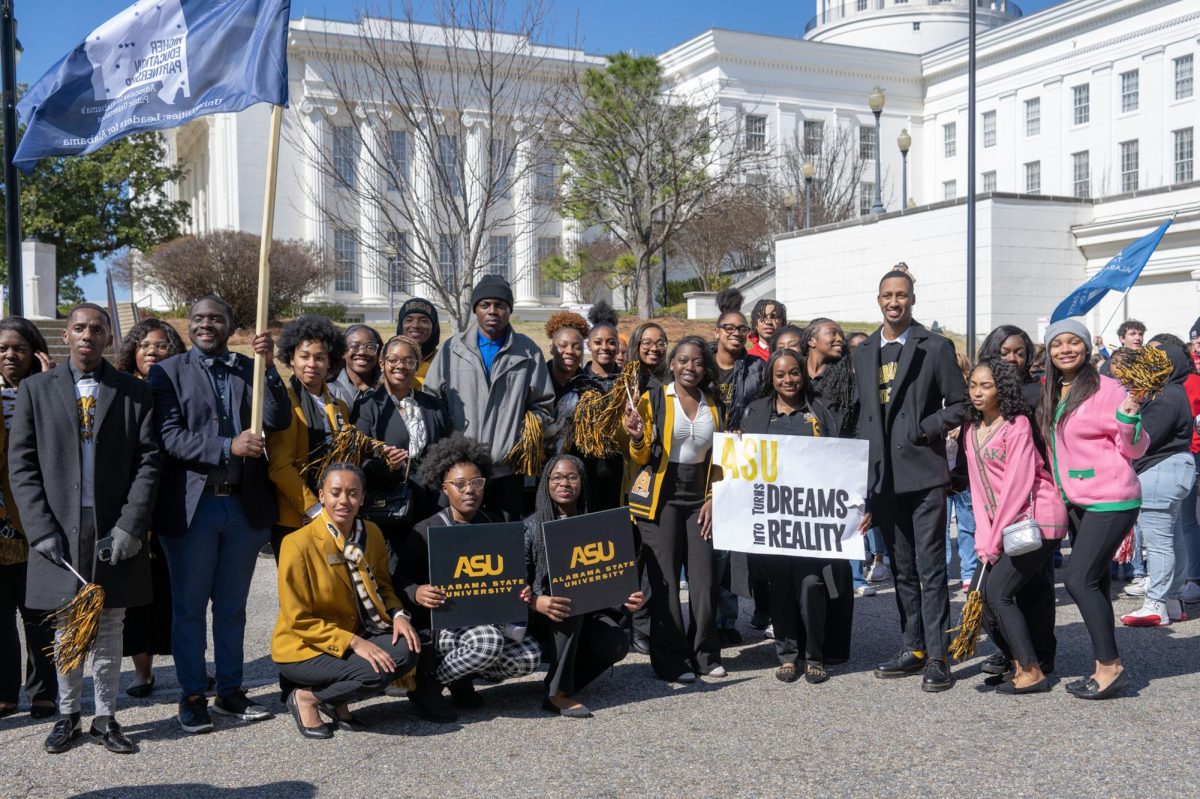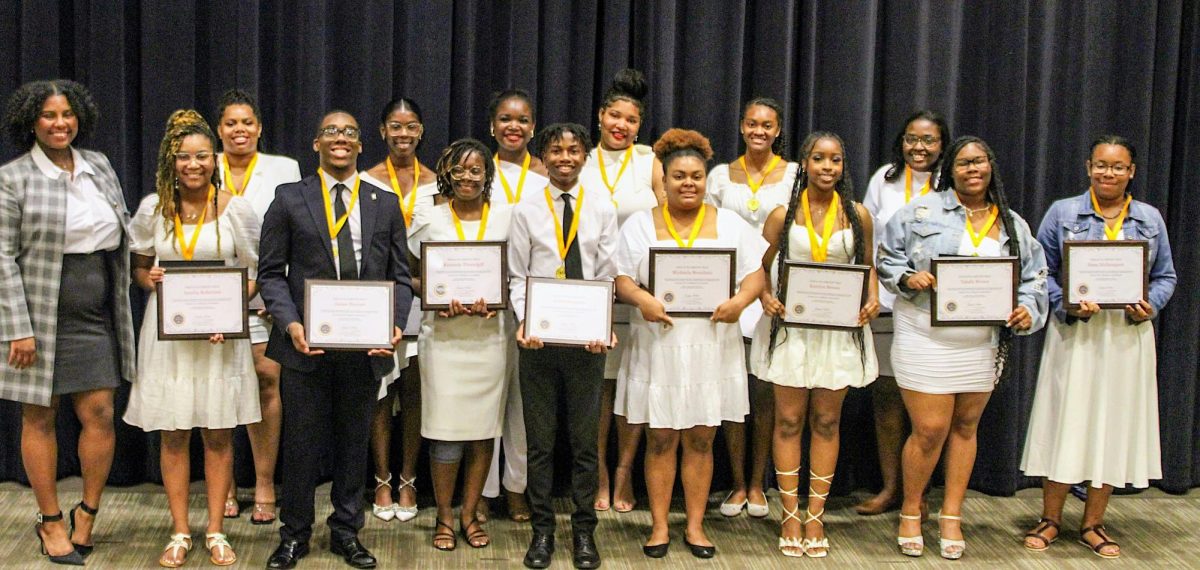
Fifteen students became charter members of the Alabama State University Society of Collegiate Journalists on Tuesday, April 9, at 7 p.m. in the John Garrick Hardy Center. This is the first time that the Society for Collegiate Journalism approved a chapter to be placed on a historically Black college or university campus.
The Society of Collegiate Journalists is the nation’s oldest honor society for student media leaders. Journalism is a foundation of democracy, and to ensure its future, the Society focuses on professional development at the collegiate level by advancing ethical, accurate and innovative collegiate journalism nationally and creating a strong network of advocates for First Amendment education.
The students inducted included Michaela Broadnax, a junior majoring in broadcast journalism; Katelyn Brown, a freshman majoring in rehabilitation studies; Takala Brown, a freshman majoring in biology; Justin Freeman, a freshman majoring in computer science; Chloe Hale, a freshman majoring in broadcast journalism; Dana Hollenquest, a freshman majoring in education; Maya McCord, a junior majoring in broadcast journalism; Amber Mitchell, a junior majoring in psychology; Denise Ringo, a junior majoring in broadcast journalism; Jessica Roberson, a freshman majoring in forensic biology; Ashonti Shaw, a junior majoring in print journalism, James Stewart, a junior majoring in social work; Kennede Threadgill, a junior majoring in political science; and Jahzara Veasey, a freshman majoring in biomedical engineering.
Each student recited a pledge and was adorned with a medal and a certificate.
Nefsa’Hyatt Brown, former editor-in-chief of The Hornet Tribune and speech writer for the first African American Congresswoman from Alabama Terri Sewell, presented an impactful speech as she left the audience with a lesson on the power and importance of choices.
“I want you all to look at every moment of your life as you matriculate through the university and go on to accomplish whatever it is your heart desires as a lesson in growth and an opportunity to pave the way for others,” she said.
The native of Mobile spoke about her struggle when she arrived at Alabama State University and how The Hornet Tribune helped her to understand her place.
“They say you catch more bees with honey than vinegar,” she said. “And when you are young and full of emotions you do not know how to manage, you have more vinegar than honey. I was so hyper-focused on what I didn’t like and wanted to be changed that I did not see what was right in front of me. I had the Fourth estate at my fingertips. A platform that served as a voice of the student body with a direct line to the people I should’ve been directing my concerns at the entire time.”
She continued.
“[Becoming the Editor-in-Chief] was one of the greatest leaps I’ve ever had to take. I went from writing one-off columns and reporting on student events to serving as a liaison between the student body and university leadership.”
Nefsa’Hyatt Brown then talked about the challenges that the new inductees are facing in the world of journalism.
“We have seen our craft erode in the face of fake news and podcasters pretending to be journalists,” she said. “You have seen misinformation and disinformation poison the minds of our peers and give platforms to people who don’t deserve them. As the next generation, I am proud to welcome you into the fold of the few journalists left and implore you not to quit even when it feels like you’re fighting alone. Because you never are. Me and so many others are right here with you.”
The induction ceremony consisted of students making a pledge, receiving their certificates and medals for becoming members.
The Society for Collegiate Journalists was formed on June 1, 1975, when two Greek-letter journalism societies, Pi Delta Epsilon (PDE) and Alpha Phi Gamma (APG), merged. Pi Delta Epsilon (est. 1909) was the oldest national honorary collegiate journalism fraternity in the country. That emphasized service and sacrifice of self. Alpha Phi Gamma (est. 1919) had two principal purposes: to honor individual achievement in journalism, as shown through a student’s participation in a campus media organization, and to help maintain and improve the quality of student publications.
“The two organizations merged in 1975 because they both wanted to honor individual achievement in journalism and promote student participation in campus media,” said Kenneth A. Dean, J.D., advisor to the Society for Collegiate Journalists. Dean, who has been pivotal to student media on the campus of Alabama State Universiity since 1990 believes this organization will not only increase the number of African American journalists, but improve the quality of media on the university’s campus.
Broadnax, who serves as The Hornet Tribune’s sports and intramurals editor said she learned how to construct a story, making her a better writer. She has only been working with The Hornet Tribune for two semesters and can testify to her growth and development as a better journalist. She aspires to spread awareness of the Society for Collegiate Journalists and continue sculpting her broadcast writing skills by attending workshops.
Managing Editor for Standards, Ethics, and Quality Control Katelyn Brown won the Society for Collegiate Journalists Medal of Merit Award for the 2023-24 year. Her jovial expression says, “I’m proud because we all play a part,” yet she did not expect to win this Merit Award. Katelyn Brown has thriving ambitions for the Society for Collegiate Journalists. She says, “The Hornet Tribune is the first to do a lot of things, so just being able to still continue that title in bringing in other organizations, especially from Predominantly White Institutions (PWI), that’s a big thing, and hopefully, we can inspire other HBCU newspapers to do the same thing.”
She also hopes there will be more diversity in media rooms, with African American voices being more heard, recognized, and acknowledged.
The program was narrated by Tyrin Moorer, a junior finance major from Pensacola, Florida.
Dean believes that the organization will help our student journalists become excellent in what they are doing.
“Since we are the first student organization recognized by the university in 1922, it only follows that we will be the first university to be invited into a prestigious national organization such as the Society for Collegiate Journalists,” he said. “I believe you will see this organization doing some unique activities and programs to help students understand now vital press freedoms are and the responsibilities associated with being a journalist of integrity.”


